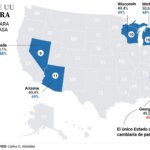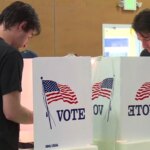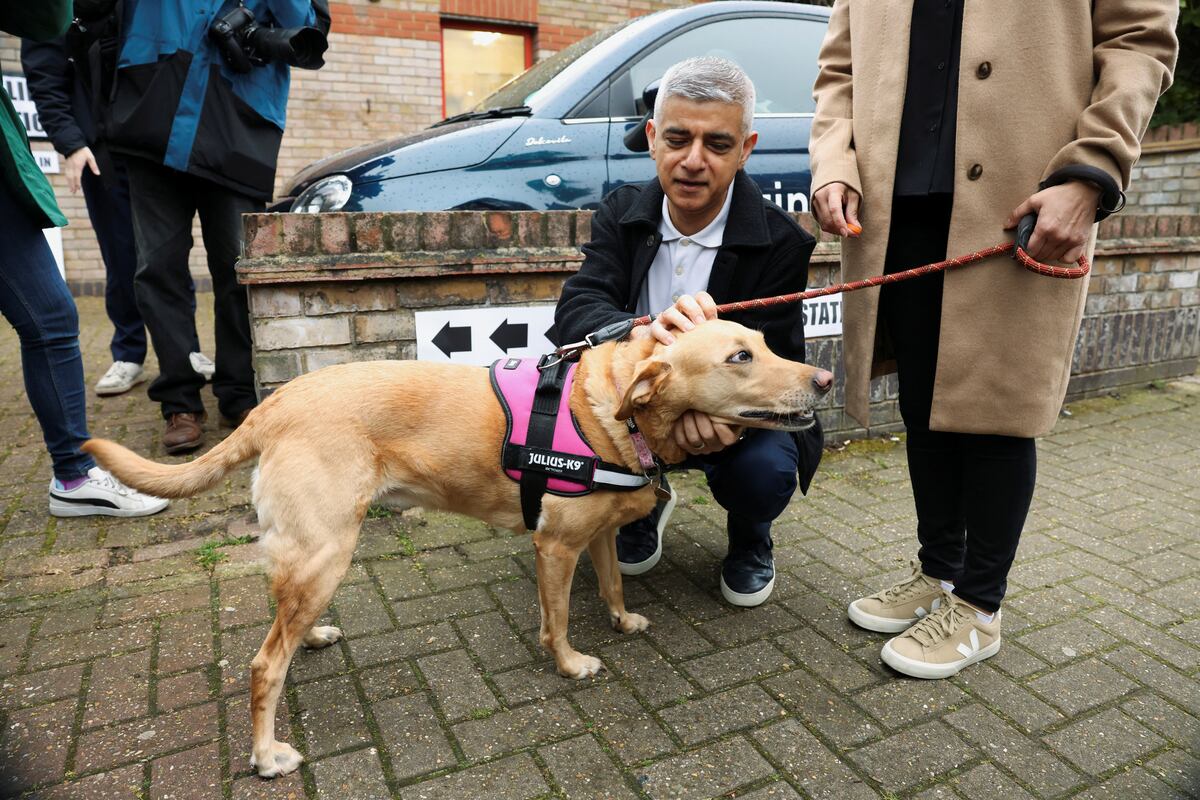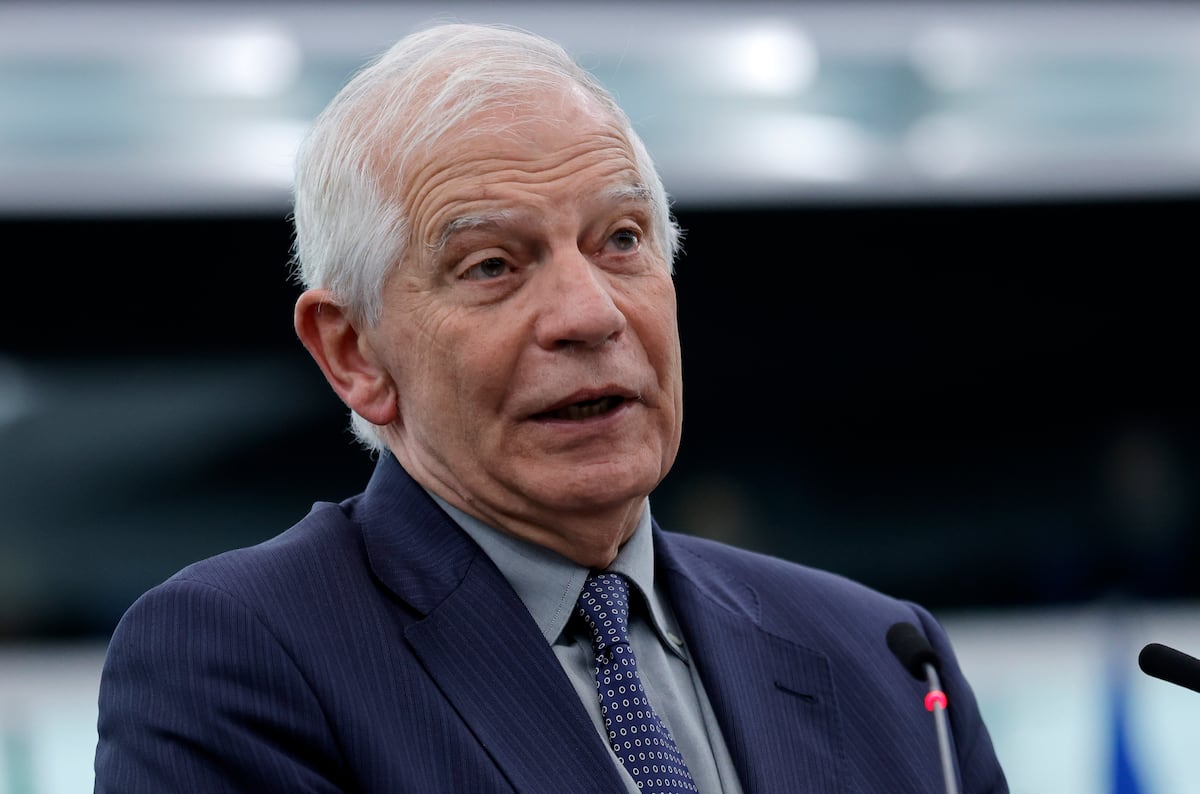Journalist Kashmir Hill obtained a tip in November 2019 {that a} startup known as Clearview AI claimed to have the ability to establish anybody from a picture. Their supply stated that the firm had collected billions of images from social networks reminiscent of Facebook, Instagram or LinkedIn – with out notifying both the platforms or the events -, and that if you happen to entered somebody’s picture into the app, it will present you all of them. the web sites on which that individual appeared, in addition to their full title and private data.
No one had dared to develop something like this so far. An app succesful of figuring out strangers was an excessive amount of. It could possibly be used, for instance, to {photograph} somebody in a bar and know in a couple of seconds the place they dwell and who their pals are. Hill, reporter at The New York Times, revealed the story of this small firm, which in a couple of months went from being a complete unknown to having the help of Peter Thiel, one of the godfathers of Silicon Valley, and to changing into the object of need of the US police forces. USA and overseas. He reached Hoan Ton-That, the impenetrable engineer accountable for the instrument that he assembled along with Richard Schwartz, a politician with a protracted historical past behind the scenes in the Republican Party. His analysis continued to form his e-book Your Face Belongs to Us (Your face belongs to usrevealed by Random House in 2023 and with out translation into Spanish to date).
“It appeared to me that the founders of the startup They had been uncommon and engaging characters, and that the story captured one thing important on this trade: that need to create new, actually transgressive applied sciences with out considering their social implications,” he explains by videoconference from New York. Born 43 years in the past and raised in Florida, Kashmir Hill, named after one of Led Zeppelin’s most legendary songs, labored in publications reminiscent of Gizmodo, Forbes both The New Yorker earlier than becoming a member of the Times in 2019. It additionally caught his consideration that such a younger firm might grasp a expertise as complicated as facial recognition in a short while.
ASK. What is particular about automated facial recognition methods? Why are you interested by this expertise?
ANSWER. It is key to linking individuals in the actual world to what is recognized about them on the web. Uncontrolled use of facial recognition would eradicate anonymity, we might now not be capable of navigate the world with out individuals realizing every part about us. Governments would know the place we’re and what we do all the time. That is already occurring in China. Russia makes use of it to establish those that show in opposition to the invasion of Ukraine. The face is, basically, the last bastion of privateness. Going again to China, they’ve developed a crimson listing for these in energy who do not need to be seen. Being on that listing means being invisible to the surveillance system, eliminating digital camera information. It is very revealing that not being seen is an unique privilege of the highly effective.
Q. Do you assume the story of Clearview AI is consultant of that of facial recognition?
R. Yes. Facial recognition expertise is a double-edged sword. It can be utilized to resolve crimes, discover murderers and rapists, but additionally to trace down dissidents or to acquire details about porn actresses and attain them. The founders of Clearview AI had very worrying concepts about what to do with this instrument. They believed that by analyzing an individual’s face they may infer their intelligence or their propensity to eat medication. They have handled Hungary, which wished their product to persecute activists and establish liberals. So in a way, it is virtually reassuring that in the finish they solely work with the police.
In China, anonymity is an unique privilege of the highly effective
Q. Clearview AI has been fined or banned in a number of international locations. What is your present scenario?
R. They proceed to function in the United States. They work with many native legislation enforcement companies, in addition to the Department of Homeland Security and the FBI. They are a bit legally besieged, however they’ve had some successes, reminiscent of a UK courtroom overturning a fantastic imposed by the regulator. Ultimately, the indisputable fact that they’ve determined to focus on legislation enforcement completely has allowed them to keep away from many unfavorable outcomes. We will see what occurs in the different European international locations.
Q. Do you assume the increase in generative synthetic intelligence (AI) has served as a smokescreen for the enlargement of corporations like Clearview AI?
R. People are very centered on generative AI, and that has diverted consideration, maybe as a result of of the means that expertise threatens our privateness. But in some methods, the issues are the similar. He New York Times, the place I work, has sued OpenAI for utilizing all of our articles with out asking permission. Similarly, Clearview AI’s database is made up of tens of billions of photos of our faces taken from the web with out anybody’s consent. I’m very involved about facial recognition mixed with generative AI. You can generate somebody’s face in a pornographic picture or in some form of embarrassing scenario and simply submit it, realizing that sooner or later somebody will search for that individual with a facial recognition instrument and discover them. I wrote the e-book as a result of I would like individuals to grasp how highly effective facial recognition expertise has develop into. Now it is actually trivial to establish somebody and discover all the images of them on the web. And I feel that has very worrying implications for the future.
Q. What is the social notion of facial recognition in the US?
R. There is actual resistance to the use of dwell facial recognition expertise. Lawmakers say they reject the thought of looking for individuals in actual time on the streets, one thing that is occurring, for instance, in the United Kingdom. At the similar time, I feel most individuals agree to make use of this expertise after against the law has been dedicated to attempt to establish the offender.
Q. How is it potential that an organization that bases its enterprise on a product constructed from the non-consensual downloading of thousands and thousands of images of human faces can function as if nothing had occurred?
R. When I first wrote about Clearview AI, that they had 3 billion images. When I completed the e-book, I feel that they had 20 billion. Now, they’ve 40,000. There are international locations which have stated that what they’re doing is unlawful. They should not acquire individuals’s images with out their consent, however they preserve doing it and nobody stops them. In the United States we’ve got some precedent, so this illegality is not so clear. We’re seeing the similar factor with generative AI: ought to these corporations be allowed to reap no matter they need and use it nonetheless they need to revenue? I feel that is one of the most essential questions of our time.
Eric Schmidt, president of Google in 2011, stated that facial recognition was the solely expertise his firm developed and didn’t launch
Q. He notes in the e-book that Google and Facebook had their very own facial recognition expertise already developed earlier than Clearview AI, however determined to not launch it.
R. I actually discovered it shocking. They are corporations which were extremely scrutinized for potential privateness abuses, and that has made them extra cautious. I additionally assume they had been frightened about the expertise itself. Their engineers had been alarmed and noticed the apparent disadvantages of releasing one thing like that. Eric Schmidt, president of Google in 2011, stated that facial recognition was so far the solely expertise that his firm developed and didn’t launch. I discovered it fascinating, by the means, that the similar factor has occurred now with generative AI: Google had its personal ChatGPT, however they thought the world wasn’t prepared for this but.
Q. Do you assume we’re heading in the direction of a hyper-surveillance society?
R. We dwell in a world the place there are cameras all over the place, however they don’t have facial recognition methods. I feel in Europe you are having that debate proper now: in case your youngster is kidnapped or there is a fugitive on the unfastened, ought to we be capable of discover them in actual time? Once you arrange that infrastructure, it could possibly be utilized in many different methods. I feel we are able to nonetheless determine whether or not or to not permit this to be a world the place we’re tracked by our faces all the time, each time we go away our homes. And it is a choice that should be made proper now.
Being in a position to establish somebody and discover all their images on the web has very worrying implications for the future.
Q. How will we draw the line between what is applicable and inappropriate use of facial recognition?
R. I feel an essential ingredient proper now is retroactive versus proactive. Do you employ it to resolve against the law that has already been dedicated or to attempt to stop crimes or discover individuals in actual time? That’s an enormous hole, it is what we’re going via proper now. Another key level is safety. In the United States, if you’re a police officer, you should use facial recognition to resolve crimes. If you’re a enterprise, you should use it to attempt to establish shoplifters and expel them. What makes individuals uncomfortable are non-security purposes.
Q. Do you assume residents will get used to and tolerate this expertise?
R. We must face completely different use instances and see how snug they’re. It was very surprising when at Madison Square Garden the legal professionals of the manufacturers that had sued them started to be stopped at the door. People realized that facial recognition could possibly be utilized in alarming methods. There was a time when White House telephone calls had been recorded. He noticed himself with all these tapes of Richard Nixon making his plans for Watergate. This precipitated social alarm and legal guidelines had been handed that made wiretapping unlawful, apart from these with a courtroom order. That’s why surveillance cameras solely report video and never sound: as a result of we determined that we did not need to dwell in a world the place every part you say is recorded. I feel the similar will occur with our faces.
You can observe EL PAÍS Technology in Facebook and x or enroll right here to obtain our weekly publication.
Subscribe to proceed studying
Read with out limits
_











